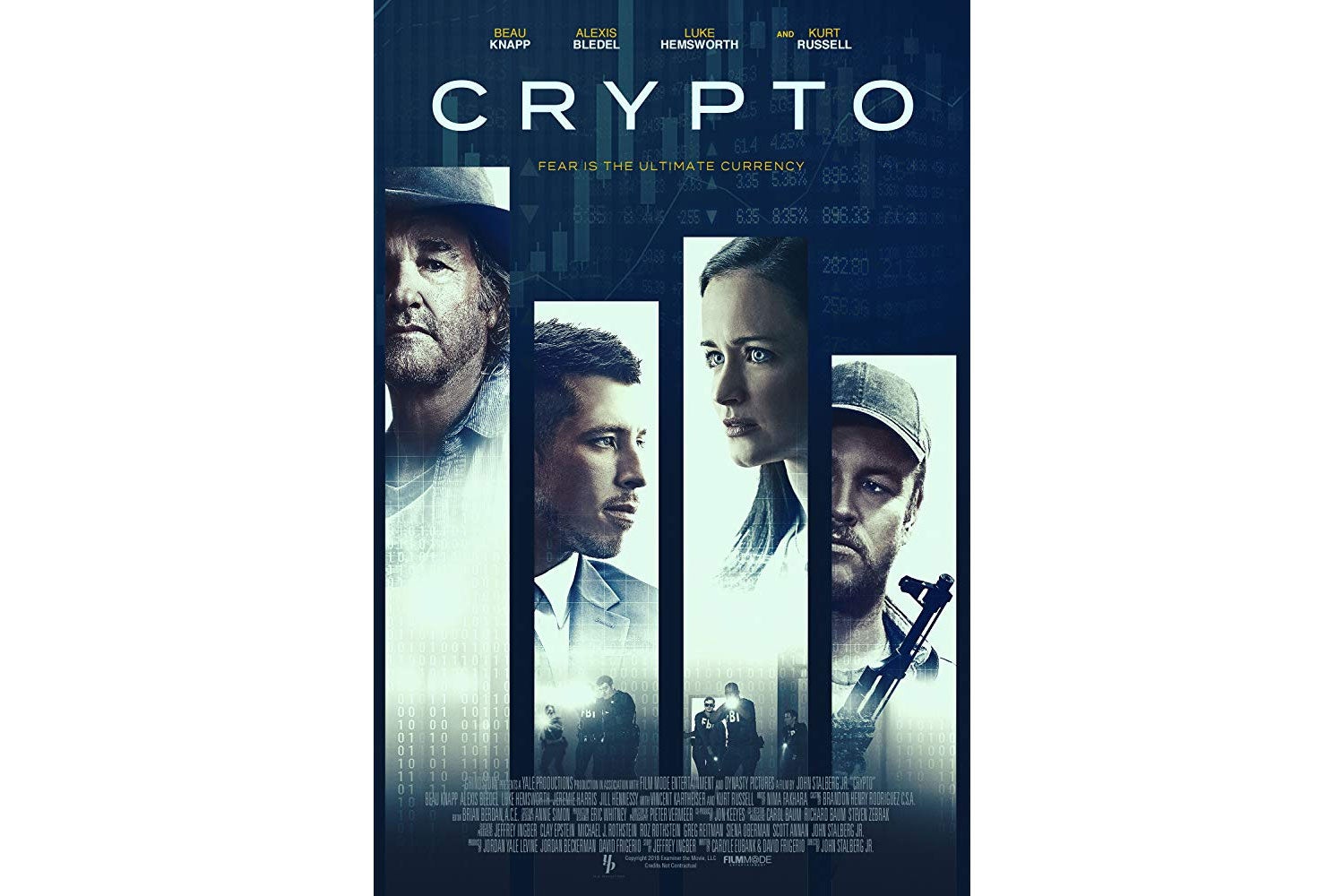It’s hard to make a good movie about hacking. As Lily Hay Newman aptly pointed out in her review of CSI: Cyber in 2015, real hacking is boring. No one wants to see an actor stare at code for hours. To make it into an action movie requires the director to liberally exercise his creative license. John Stalberg Jr., the director of the upcoming bitcoin crime thriller Crypto, seems to do just that.
Bringing together Kurt Russell, Beau Knapp, Alexis Bledel, and Luke Hemsworth, the newly released Crypto trailer gives us an anti–money laundering investigator stationed in a remote town in New York state, trying to unravel a complex web of cybercrime.
It’s not very clear from the trailer what this money-laundering scheme entails. We do know that it involves bitcoin, Kurt Russell in a rugged farmer get-up, and heavily tattooed Russian mafia—the go-to villains of any respectable American action film. We also see Beau Knapp’s character, a brooding big city man in sharp suit, frown and stare gloomily at various computer screens, sometimes typing furiously. Perhaps the greatest highlight of the trailer involves Knapp hacking the villains’ computer to discover neatly organized folders labeled “Bitcoin payouts,” “Feeding information,” and “Kickbacks.” In fact, editor-in-chief of CyberScoopNews Greg Otto tweeted out his gleeful reaction to the trailer with a screenshot of those folders:
So, it’s an action movie about cybercrime featuring the lesser-known Hemsworth brother as a farmer sidekick. But can we expect a remotely accurate portrayal of the underground world of digital money laundering? I decided to ask an expert.
Jules White, an associate professor of computer science at Vanderbilt University, found the trailer to be “a bit on the far-fetched side” in its treatment of bitcoin. If the movie is like the trailer, then it presupposes that “bitcoin is the direct unit of currency, and that it doesn’t require being translated into dollars or physical assets,” White told me. “If you had a bank or some other company in the U.S. that was really trying to launder money using bitcoin in some way, it’s going to show up because they’re suddenly going to have assets, either U.S. dollars or property, on their balance sheets that shouldn’t be there. And they’re going to have to explain that.”
In the Crypto trailer, a character hacking a bank account says: “No phone, no email, just 10 million in cryptocurrencies.” It’s worth noting that the corresponding image on the screen shows an account with clearly discernible dollar signs, not the bitcoin symbol. The bottom line is, that’s not how bitcoin trading actually works. Criminals don’t covertly exchange it as a stand-alone currency—it must be converted to real dollars. Perhaps that’s what the trailer was attempting to illustrate with its bungled visuals. We’ll just have to see the whole film to find out.
I asked White whether this movie had the potential to generate new bitcoin chatter among the general public, but he doesn’t think so. “We’ve probably reached some of the peak bitcoin-blockchain hype, which is reflected in the token offerings not happening in the same way anymore, and the bitcoin price not being reported in the news,” White explained. It seems Crypto is a little late to the party.
In 2018, Coindesk reported that more than 70 percent of Americans have heard of bitcoin. It’s unlikely that a fast-paced action thriller will tap into a new audience unfamiliar with cryptocurrencies. “My parents, who are in their 80s, were asking me about bitcoin and blockchain last year,” White said.
Despite the trailer’s shortcomings, White didn’t rule out seeing the movie on Netflix or Amazon, if it ever makes it that far. Crypto is scheduled to be released in theaters and on demand on April 12.
Future Tense is a partnership of Slate, New America, and Arizona State University that examines emerging technologies, public policy, and society.
